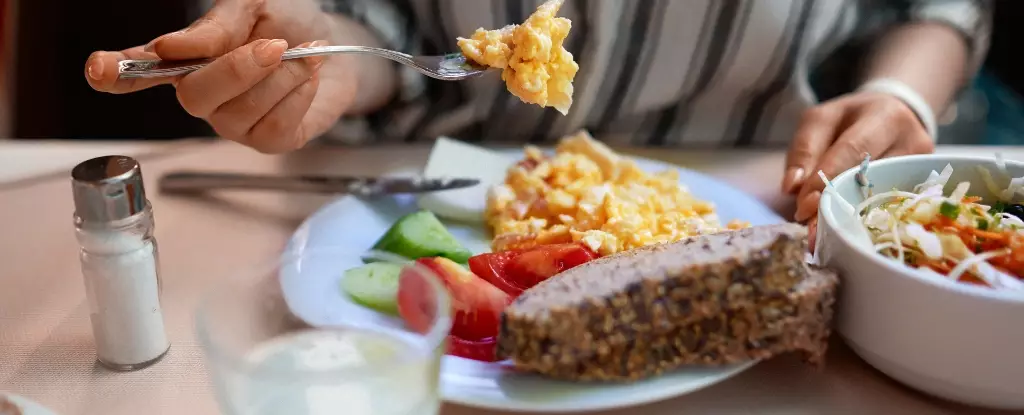In an era dominated by quick-fix solutions, the surge in popularity of pharmaceuticals like semaglutide for weight management showcases society’s struggle with obesity. However, what is often overlooked amidst the allure of prescription aids is the potent capability of our diet to facilitate natural weight loss. Although weight-loss medications, such as Ozempic and Wegovy, effectively bolster hormone levels to induce satiety, many individuals still gravitate towards non-pharmaceutical methods. This inclination is not just a casual preference; it represents a deep-rooted desire for sustainable well-being without dependence on drugs.
Striking a harmonious balance between modern science and traditional dietary wisdom can offer a viable pathway for achieving weight loss naturally. By understanding nutrient-rich food sources and employing strategic dietary practices, one can mimic the effects of pharmacological solutions.
The Marvel of Hormones and Nutrients
At the heart of this natural approach lies glucagon-like peptide 1 (GLP-1), a hormone critical in managing appetite regulation. GLP-1 serves as a satiety signal that delays gastric emptying and promotes feelings of fullness. The pharmacological intervention with semaglutides works by amplifying GLP-1 levels drastically while simultaneously inhibiting dipeptidyl peptidase 4 (DPP-4), the enzyme responsible for GLP-1 breakdown. This manipulation creates an extended sense of satiety, leading to reduced food intake.
Fortunately, we need not solely depend on such high-level medications to stimulate GLP-1 production. Nutritionists laud the benefits of fiber, abundant in beans, whole grains, and vegetables, which naturally enhances GLP-1 levels through fermentation in the gut. When these fibers undergo fermentation, they spawn short-chain fatty acids that play a significant role in triggering GLP-1 secretion. Thus, the link between fiber intake and successful weight management is becoming ever more evident.
Moreover, dietary fat sources, particularly monounsaturated fats from olive oil and avocados, significantly contribute to GLP-1 levels. Interestingly, studies reveal that specific food pairings, such as enjoying bread with olive oil, substantially elevate GLP-1 compared to traditional butter. This phenomenon underscores the essence of both quality and combination when it comes to food choices in our diets.
The Science of Eating: Timing and Sequence
Yet, the equation of effective weight management isn’t solely composed of which foods we choose. The timing and sequencing of food consumption also play pivotal roles. Research indicates that the order in which we consume our meals can affect GLP-1 release. For instance, eating proteins prior to carbohydrates not only maximizes GLP-1 levels but can foster an environment where our body better regulates insulin and blood sugar.
Additionally, the time of day at which we eat matters considerably. Aligning our intake with our body’s natural circadian rhythms—having a hearty breakfast instead of dinner—profoundly impacts GLP-1 secretion rates. Hence, the age-old adage about eating breakfast like a king begins to find scientific backing, indicating that our bodies are more responsive to morning nourishment.
Even the act of eating itself influences hormonal responses. Studies demonstrate that prolonged mastication can elevate GLP-1 secretion compared to gulping down the same food hastily. Slowing down your meals, savoring every bite, and chewing thoroughly transform the dining experience, turning it into an act that nurtures both body and mind.
Embracing a Holistic Approach
While it may be tempting to compare the instantaneous results offered by medications against the slower progression of dietary changes, the long-term implications of lifestyle choices far outweigh temporary fixes. Research has repeatedly shown that adopting a Mediterranean dietary approach not only enhances GLP-1 levels but reduces the risk of cardiovascular disease more significantly than weight-loss drugs alone.
People should adopt a multifaceted strategy: begin the day with a satisfying breakfast, always incorporate fiber-rich foods, and make olive oil a staple, savoring the nuances of different dietary fats. By also adjusting meal order—prioritizing proteins and vegetables—and being mindful of food speed, individuals can create a self-sustaining framework for weight management.
Snacking wisely—favoring a handful of nuts over commercial sweets—can reinforce this holistic approach. While pharmacological solutions provide quick-capital, the beauty of dietary management lies in its ability to promote lifelong health, far beyond just weight loss.
The empowerment of making informed dietary choices lies not in outright confinement to the latest diet trends but in understanding one’s body and responding with knowledge and care. Exploring these natural strategies allows for not just weight loss, but a flourishing of overall health, steering clear of the pitfalls of a pill-based culture.

